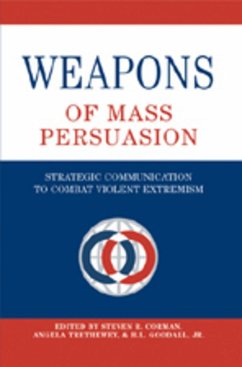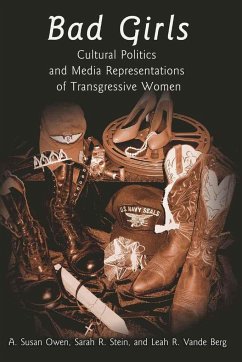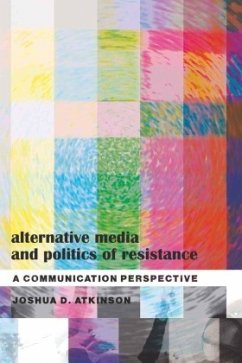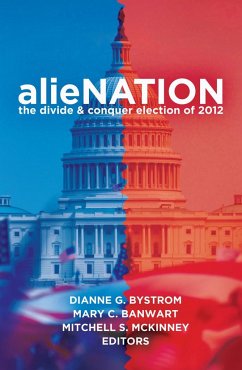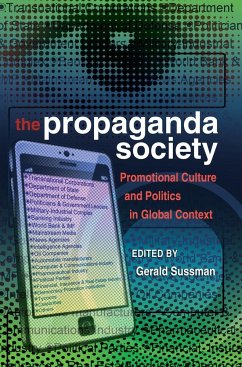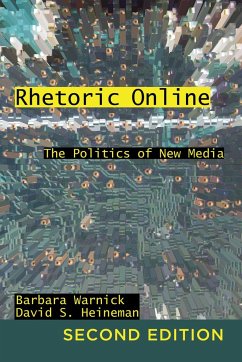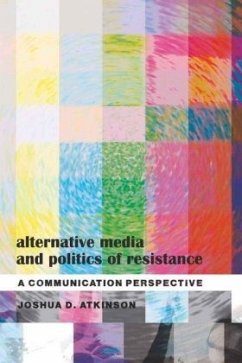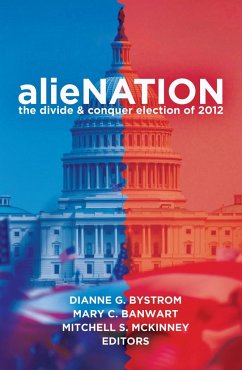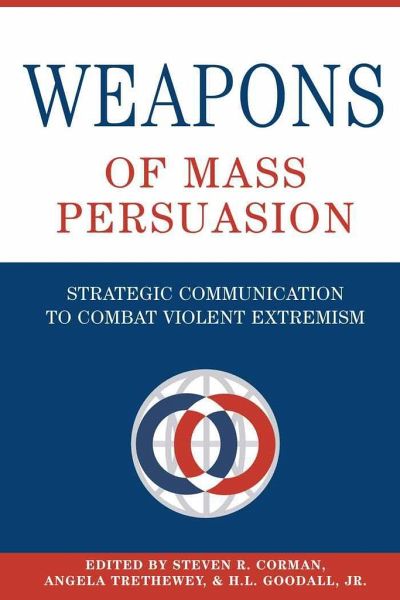
Weapons of Mass Persuasion
Strategic Communication to Combat Violent Extremism
Herausgegeben: Corman, Steven R.; Trethewey, Angela; Goodall, H. L.
Versandkostenfrei!
Versandfertig in 6-10 Tagen
116,40 €
inkl. MwSt.

PAYBACK Punkte
0 °P sammeln!
Complementing and extending scholarship in three areas - terrorism; the media, mediated representations, and propaganda in contemporary culture; and the political and diplomatic environment post-9/11 - this book articulates the role of human communication in the «war of ideas». Drawing on contemporary research from a variety of disciplines, this book offers analyses and recommendations for people to make use of informed, inspired, and ethical communication to counter ideological support for terrorism and to promote more effective public diplomacy. This is the first book to apply human commu...
Complementing and extending scholarship in three areas - terrorism; the media, mediated representations, and propaganda in contemporary culture; and the political and diplomatic environment post-9/11 - this book articulates the role of human communication in the «war of ideas». Drawing on contemporary research from a variety of disciplines, this book offers analyses and recommendations for people to make use of informed, inspired, and ethical communication to counter ideological support for terrorism and to promote more effective public diplomacy.
This is the first book to apply human communication concepts and theories - and to offer potential solutions - to the communication problems encountered by nations, communities, and individuals, and in doing so moves beyond critiques of failed U.S. communication campaigns and strategies in the «war on terror».
This is the first book to apply human communication concepts and theories - and to offer potential solutions - to the communication problems encountered by nations, communities, and individuals, and in doing so moves beyond critiques of failed U.S. communication campaigns and strategies in the «war on terror».



